#arguably one of the most important nancy dynamics and i MEAN it
Photo
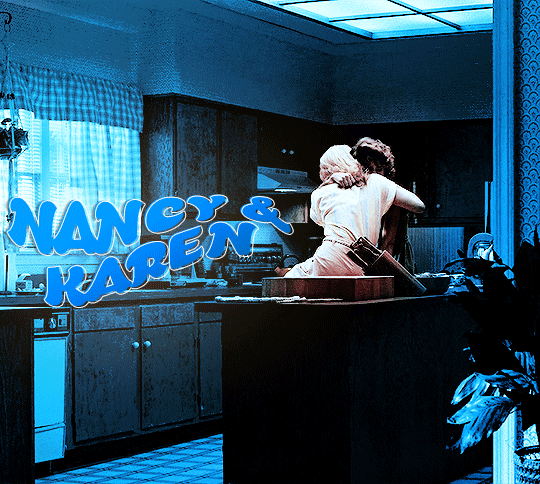

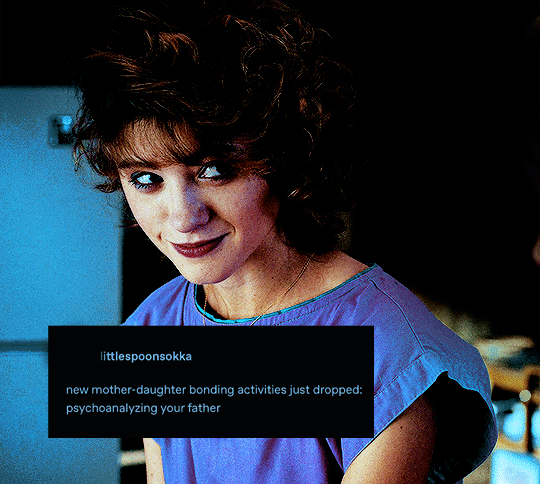
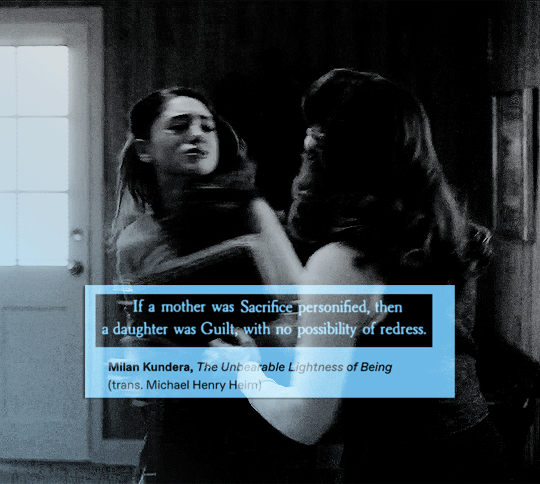
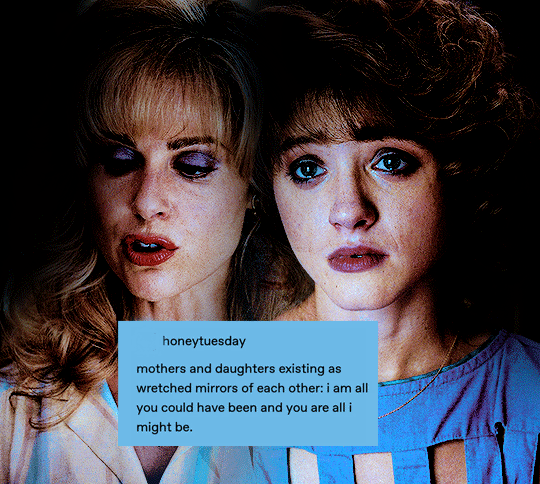
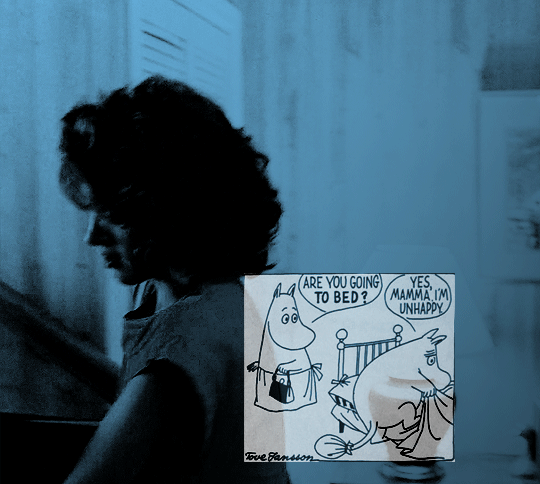

FAVORITE CHARACTER MEME
(2/4) dynamics ♀ nancy & karen
#nancywheeleredit#strangerthingsedit#tvstrangerthings#tuserdee#usertrinity#userlindsay#userlanie#userrachel#tuserrobin#userbecca#usermorgan#nancy*#nancy wheeler#karen wheeler#nancy x karen#stranger things#gif#mine#i kinda. hate how this looks but . they are so important to me#n i AM a karen wheeler enthusiast n will be forever .#arguably one of the most important nancy dynamics and i MEAN it
1K notes
·
View notes
Text
One thing I think the Duffers dropped the ball on is not using Steve in a leadership role within the group dynamic because he 100% has the skillset for it and it would also round out his character arc very nicely without diminishing the roles any other characters play.
And when I say Steve has the skillset I mean he played team sports and was in a leadership role on those teams. As someone who has played team sports before, the best captains are the ones who are not just physically good at playing the game, but also the ones who are able to coach others into improvement without making them feel like idiots, participate in strategizing and communicating those strategies effectively to the team, leading the team in the absence of the coaches, having good sportsmanship, being able to work with opposing teams without causing problems, etcetera.
Which is my long winded way of saying the best leaders are those who are good with people. Of the many characters on the show - particularly the teens/kids - Steve is arguably the most emotionally intelligent and he is genuinely the best with people. I don’t think we see as many examples of it in the show as we could because 1) I think the Duffers don’t see Steve as any form of intelligent because the Everything about how they write their jock and jock-adjacent characters displays a lot of prejudices and biases about the “dumb jock” stereotype and 2) the Duffers have definitely dumbed Steve down even more throughout the seasons to the point where he is The Protector and the Joey Tribbiani, so dumb he’s become comic relief.
(playing sports also would give Steve a lot of experience with strategy, both preplanning and in making split-second decisions in the moment but being a good leader isn’t contigant on being good at strategy, I just wanted to point out he could and should be good at it)
Narratively, season 2 would have been an excellent starting point for building Steve’s leadership role since he spends the back half of the season in charge of the Party and, essentially, leading them. That would build through season 3, settle in season 4 as this is the role he has (especially since they were operating without Joyce or Hopper), and then be able to expand on his capabilities in season 5.
In season 4 specifically, Steve insisting Nancy not go alone should’ve been taken as him taking charge in that situation because he was correct, they should not be doing anything alone. I also think doing something small like just inserting a line where he’s asking for ideas on the plan instead of straight jump cut to them going planning how to get supplies would’ve been great.
I also think moments like having Steve’s voice be the voice over leading up to them executing their plan and Steve being the one to be Vecna’d instead of Nancy (which would show that Vecna viewed Steve as integral enough that fucking with his head wold affect the group) would have put an importance to Steve and put him more into that leadership role in to the audience without needing overt displays and adding to run time (since the Duffers tend to cut out a lot of moments where leadership would’ve been evident to save time). By using these 'important’ moments though would’ve been great ways to set up Steve in a genuine, established leadership role in season 5, especially since there’s going to be a time skip.
I also don’t think that making Steve the leader would be taking anything away from the other characters - at least not the other teens/kids. For starters, Dustin, Lucas, and Max have never been the ‘leaders’ - that’s Mike. Furthermore, the only other person really sitting in that leadership position among the teens is Nancy but she is already academically gifted, the journalist, the detective, etcetera. She also is not the best people person (competent, but it’s not her strongest feature) and she has the tendency to get fixated on things, which isn’t the greatest trait to have as a leader.
Anyway, I think the Duffer Brothers Joey Tribbiani’d Steve’s charcater and they 100% could have been doing a lot more with him than they are if they weren’t looking at him through biased “dumb jock” glasses.
#the duffers have definitely fallen off when it comes to ensuring every character gets properly developed every season#they also have a very blatant bias towards 'jocks' and jock-adjacent people#otherwise steve would be more than the tank and dumb comic relief at this point#steve harrington#stranger things
23 notes
·
View notes
Text
1x07 Discussion Questions
I know, I know, I’m super late, but this is the second time I answer the questions made by the lovely @pynkhues because the first time I wasn’t happy with my answers.
1. What was your favourite scene of the episode? Tell us why!
To be honest I love everything except the secret shopper scenes, no matter how many times I rewatch the episode I still hate those scenes and I have to force myself to watch.
2. Was there any scene that missed the mark for you? And if so, how?
Yeah, their plan to basically use innocent people ( all women, except from Tyler) really doesn’t sit well with me ( tho I can totally understand why they did it). I just really hate it when someone uses feminism as a way of luring innocent women and involving them in shady things.
3. Let’s talk about the secret shopper scheme! What do you think were the strengths of it? The flaws? Do you think it had longterm potential? Or was it always going to crash and burn?
Nope, nope, nope, I absolutely hated every second of it and I knew that it was going to blow up in their faces. I mean there were way too many people involved, and sooner or later someone would have started to suspect things, or would have tried to fool the system ( like Mary Pat did).
4. The girls spent their money in very different ways! Ruby on romancing Stan, Annie on clothes for her son, and Beth on jewellery for herself. What do you think this tells us about them and their arcs? Particularly coming off the back of Ruby’s conflict with Stan, Ben’s issues at school with clothes, and Beth leaving Rio her pearls?
I think that for the first time in her life Beth puts herself first and wants to have nice things ( she totally deserves it). Before that she always thought about her kids and her husband, and kinda ignored her own needs. It would be quite amazing if the pearls were a gift from Dean, because that would be like she left him behind and used the pearls to start a new life.
Annie usually buys gifts for Ben when she has money ( like that laptop for example), I think she often feels guilty because she can’t normally afford to give him nice things ( and since Nancy is quite rich she might feel like she has to compete with that).
It wasn’t at all surprising that Ruby spent the money on romancing Stan, I think she still feels guilty for not telling him the truth, before this all thing started I doubt that she ever hid something from him. Or lied to him.
5. Eddie’s arrest is arguably what sets us on a collision course with the finale! Do you think Eddie was loyal to Rio until the end? How much do you think he told Turner? And what sort of loyalty do you think Rio inspires in his boys? And why doesn’t it translate with the girls?
I would like to imagine that he tried to stay loyal to Rio, but then Turner might have mentioned his mother ( I think Eddie was very close to her and didn’t want to spend years without seeing her) and Eddie might have felt like he had no other choice. I guess he hoped that Rio won’t suspect anything, and he tried to share with Turner details that weren’t that important ( not that Eddie knew a lot, though, he didn’t seem to be part of the inner circle).
I think almost everyone in the fandom have the headcanon that Rio grew up with most of his employees, and I agree with that. I think that most of his boys knew him for years, so it’s not surprising that they are loyal to him. With the girls it’s quite different because they started off as enemies ( and they were terrified of him in the beginning), so he didn’t exactly win their loyalty.
6. This episode introduces us to Mary Pat, who’s probably one of this show’s most complicated antagonists! What do you think of her generally? And could you have predicted her arc with Boomer and Turner?
I never liked her, and while I do feel sorry for her ( for what would happen to her later), I still think that she is greedy. I could understand if she would have demanded money once, but every month??! And she never seemed to use the money for her children ( she could have easily hired a babysitter) so I have no idea what did she do with them ( maybe pay her debts? I don’t really remember ). And no, I never imagined that she would interact with Boomer and Turner.
7. This episode features a very pivotal scene in terms of the Beth, Ruby and Annie dynamic. What starts as tension between Annie and Beth quickly pivots when Ruby criticises Beth and Annie leaps to her sister’s defence. What do you think this tells us about the dynamic between the girls as pairs and as a trio?
I think that Annie took her sister’s side only because she still remembered the last fight they had, and probably still felt guilty about it. Usually Annie and Ruby are on the same side, and try to stop Beth from doing crazy things.
8. Greg is the one who kisses Annie! Who do you think left who in that relationship, and/or what were the biggest issues in that relationship?
It would only makes sense if Greg was the one, because Ruby mentioned that she comforted Annie when she signed the divorce papers. I doubt that Annie would have cried if she would have been the one who wanted the divorce ( plus that she had Ben to think of, I think for his sake she would have tried to work things out even if she would have been unhappy).
I think that the biggest issue is that they were both so young when they got together, so it’s not surprising that after a few years things got boring, or they both changed and Greg realized that he wanted something else.
9. What did you think of Ruby’s sauce story? And what do you think it meant as a turning point for her arc?
That was simply horrifying and I understand perfectly why she would never want to go back there.
10. Knowing that Beth, Ruby and Annie’s system of paying Mary Pat off doesn’t work, do you think there was a way they could’ve handled her on their own that would’ve worked? Or do you think Rio’s intimidation (and potential murder) tactic was the only way out?
No, I’m afraid that only Rio’s intimidation would have worked, I doubt that Mary Pat would have believed the girls if they would have tried to warn her about Rio.
6 notes
·
View notes
Text
Kirsten Gillibrand’s Failure to Launch
New Post has been published on https://thebiafrastar.com/kirsten-gillibrands-failure-to-launch/
Kirsten Gillibrand’s Failure to Launch
HAMPTON, New Hampshire—Kirsten Gillibrand is only asking for a dollar.
It’s not that she couldn’t use more money. In the first quarter of 2019, the junior senator from New York raised just $3 million for her presidential campaign, the weakest haul of the six senators running at that time and arguably one of the most disappointing totals of anyone in the sprawling Democratic field. Given her anemic polling since entering the race, Gillibrand’s feeble fundraising performance fanned skepticism about her viability to earn a nomination that Democrats believewill require close to $100 million in hard money raised.
Story Continued Below
But at this point, Gillibrand isn’t focused on winning the primary. She’s worried about surviving the next few months.
Despite a soaring national profile in the U.S. Senate, Gillibrand has failed to achieve liftoff as a presidential prospect. She has not broken 2 percent in a single national poll since officially declaring her candidacy in mid-March, and her 0.4 percent average in the RealClearPolitics aggregate of surveys places her behind the likes of Julián Castro, Tulsi Gabbard and even geeky long shot Andrew Yang.
Her bigger problem is fundraising. To secure a spot in the first double-header of Democratic primary debates in late June, candidates must meet two thresholds: surpassing 1 percent in three recognized national polls and collecting 65,000 unique campaign contributions. Gillibrand has checked the first box, however unimpressively. Yet the second mission remains unaccomplished. With the debates closing in—and with even quixotic candidates such as self-help guru Marianne Williamson hitting the 65,000-donor mark—Gillibrand is under the gun. The Democratic National Committee is limiting the total number of participants to 20. Shecould(and likely will) qualify by meeting the polling threshold only. But given the late gusher of contenders entering the fray, her place on stage can be guaranteed only by growing her donor ranks—and quickly.
Which brings Gillibrand to the climax of her stump speech. It’s the second weekend of May, she’s addressing a standing room-only crowd at a micro-pub four miles inland from the Atlantic Ocean, and the senator has finally hit her stride. Whether it’s the booze flowing from the taps or some other environmental factor—OK, it’s the booze—this has been Gillibrand’s best event of the day. Her talking points are sharp. Her jokes are well executed. Her audience is energized and engaged. Candidates typically fade late in a long day on the campaign trail, but Gillibrand has gotten stronger. The voters are hanging on her every word—about reforming the EPA, battling the NRA, encouraging national service programs and confronting Russian aggression. Finally, Gillibrand decides, it’s time to make the ask.
“For anyone here, if you like what you’ve heard tonight, I want to earn my place on the debate stage. I can’t do it unless you send a dollar—literally,really,” Gillibrand says, shaking her head as though to acknowledge the oddity of this request. “The measure is for anyone who wants to be on the debate stage, you need to get 65,000 individual supporters. So please go to KirstenGillibrand.com and just send a dollar. It will help me get to the debate stage.”
Gillibrand isn’t the only 2020 hopeful who has resorted to this method. Tim Ryan’s website features pop-up advertisements asking for $1. And Michael Bennet’s spots on social media make an identical solicitation.
But that’s Tim Ryan and Michael Bennet—an obscure congressman and low-profile senator, respectively. Ryan’s chief claim to relevance is being slaughtered by Nancy Pelosi as the sacrificial lamb who challenged her in the speaker’s race on behalf of disgruntled House Democrats after the 2016 election. Bennet has done little to distinguish himself as a senator and won his Colorado seat in 2010 only because the GOP snatched defeat from the jaws of victory, nominating a self-destructive Tea Party candidate whom Bennet managed to defeat by some 30,000 votes.
Gillibrand plays in a different league—or at least, she was supposed to.
***
A Dartmouth-educated lawyerwho worked in corporate law before clerking on the U.S. Court of Appeals, Gillibrand gained national attention upon entering the political arena for possessing a rare combination of big brains, telegenic looks and personal magnetism. Her storming of a conservative upstate New York congressional district in 2006 announced her arrival as a player in Washington, and it was little surprise when, a few years later, after Hillary Clinton’s appointment as secretary of state, Gillibrand was tapped to replace her in the Senate. After winning her own full term in 2012—racking up the largest statewide victory in the history of New York politics—Gillibrand set about overhauling her political brand.
It wouldn’t be easy to shed the image responsible for her House victories—that of a down-home, gun-friendly, anti-amnesty, culturally conservative Democrat who identified with her rural constituents more than with the party’s coastal elite. But slowly, methodically, Gillibrand did just that, smartly picking and choosing fights that would burnish her populist progressive bona fides while elevating her national stature. She co-directed the effort that banned insider trading among members of Congress. She was an integral part of the campaign to repeal the “Don’t Ask, Don’t Tell” policy that governed gays in the military. She introduced pioneering legislation aimed at ensuring paid family leave. And she became Washington’s leading voice on sexual assault, first by focusing on cases in the military and then broadening to harness the energy generated by the #MeToo movement.
All the while, she raised tens of millions of dollars, wrote aNew York Timesbestseller and was named one ofTime’s 100 most influential people in the world.
As it became clear that Gillibrand was preparing to launch a campaign for the presidency in 2020, the only question seemed to be the height of the senator’s ceiling. Could she win the Democratic nomination? And if so, could she succeed where her friend and former mentor, Hillary Clinton, failed four years earlier?
Today, the question is whether Gillibrand can get off the floor.
In a conversation for POLITICO’s “Off Message” podcast, the New York senator vacillated between insinuating that she is being treated differently because of her gender and arguing that Americans are ready for a female president.
“Hillary won the election. She won the popular vote by 3 million votes, and you have to remember, she was definitely the most qualified candidate we’d ever had running for president,” Gillibrand says. “And, but for Russia, but for Comey, but for misogyny, but for a lot of things, she would have won. So, I believe that of course this country is ready to elect a woman president, but they need to know what we’re running on and what we’re for, and why we’re running and why we think we’re the best candidate.”
Yet Gillibrand has struggled to communicate this to voters. Things have gotten so grim for her that recently, a high-ranking campaign aide to Cory Booker—Gillibrand’s opponent for the Democratic nomination—tweeted that she had donated to the New York senator’s campaign and encouraged others to follow suit. This was done, the aide noted, to ensure that Gillibrand’s “important perspective is on the debate stage.” To other Democrats, this looked less like an act of short-term benevolence than one of long-term strategy: The historically large field will soon begin to be winnowed, and when it does, some of the surprising early exits will make for valuable endorsements. No name has surfaced in those conversations of late more frequently than Gillibrand.
How did it come to this? How did one of America’s best-financed senators come to rely on charity and presidential pan-handling, begging for a dollar at a time just to stay alive? How did one of Washington’s most recognizable women find herself buried in the polls beneath a number of less prominent men? And how does she breathe life into her campaign before it’s too late?
Gillibrand and I discussed this, and much more, while having lunch in Manchester, in the car while driving to Goffstown and over a beer during her final stop of the day in Hampton.
Gillibrand claims, like all candidates do, that she’s having the time of her life campaigning for the highest office in the land. And yet her cheerful demeanor cannot mask the annoyance she is feeling—with the media, with the gender dynamics central to the race, and with the Democratic Party itself.
Gillibrand clearly doesn’t think much of the DNC’s rules governing the debates. Even before the national party announced the stricter criteria candidates would need to meet to qualify for the third and fourth debates this fall—effectively putting an expiration date on more than half of the Democratic candidacies—Gillibrand took issue with the emphasis on early polling to shape a process that has commenced far earlier that it once did.
“The last couple of presidential candidates who were Democrats who won, or even are nominees, you had to look at where they were at this early stage. I think somebody looked up where Bill Clinton was at this stage. He had 1 percent in the polls and had 30 percent name recognition in Iowa. So, like, it takes time,” Gillibrand said. “And with 20 candidates, it might actually take longer … because for each one of us to have a chance to be heard it’s going to take time. I mean, even the debates alone, if we get more than five minutes each on that stage, that’ll be surprising. So, you’re really even not even going to have more than a few minutes to talk about what you’re for and why you’re running and what your views are for the country.”
Gillibrand argues that both of the debate thresholds, polling and unique contributions, “are related to name recognition.” But she certainly is better known than the likes of Yang, or Williamson, or Gabbard, or Washington Gov. Jay Inslee, the latest 2020 candidate to “double qualify” by reaching both qualification milestones. Working the referees this early isn’t a sign of strategic savvy; it’s a sign of desperation.
Asked about the pressure she’s feeling, Gillibrand said it’s “created because of the DNC’s framework that they’ve put the candidates under,” which she suggests isn’t the “natural” or “normal” role for a national party. Asked whether she disagrees with the DNC’s rules, she replied, “I’m not sure. I don’t know that they’re serving the public well.”
Meanwhile, compounding Gillibrand’s frustration is her fraught relationship with the political issue that has defined her ascent: gender.
When I asked whether it was problematic to have so many white men—Beto O’Rourke, Joe Biden, Bernie Sanders, Pete Buttigieg—soaking up the media spotlight, she replied, “Yeah, I think it’s problematic. …. We have amazing women candidates, amazing candidates of color, and hopefully through this process we will lift our voices up and be heard.”
The look on her face when I mentioned O’Rourke’s appearance on the cover ofVanity Fairwas beyond description. “Unusual,” she finally mustered, biting her lip and her tongue at once, a litany of curse words no doubt suppressed underneath her smirk. “Never seen it before.”
And when I asked Gillibrand to name the worst part of running for president, she replied, “I don’t want to tell you.” She added that “it’s not an appropriate thing for me to say,” then promised to tell me later, off the record.
After hearing the off-the-record answer, I pressed for a sanitized version, which she offered in the most measured of tones. “The one thing that’s annoying to me is how many times reporters ask you about our male colleagues. Who cares?I’mrunning for president. I want to tell you whatmyvision is, whyI’mrunning, and whyI’mgoing to win,” she said. “I think reporters like yourself, who are super smart and super careful, will always ask me what I think about the male colleagues. Are you asking the male colleagues what they think about us? Probably not.”
The one thing that’s annoying to me is how many times reporters ask you about our male colleagues. Who cares? I’m running for president. I want to tell you whatmyvision is, whyI’mrunning, and whyI’mgoing to win,” Gillibrand said. “Are you asking the male colleagues what they think about us? Probably not.”
This is the hang-up of Gillibrand’s campaign. Never has the Democratic electorate been more exercised by issues of identity, and never has gender been more central to the national conversation—politically, culturally, socioeconomically and otherwise. And yet Gillibrand, despite having very little to lose at this point, remains cautious in interviews and on the stump—aiming for broad appeal instead of a niche brand, trying to draw in support from every cell of the party rather than cultivating a base and building out.
At every stop in New Hampshire, the senator was careful to modulate her answers and her tone in ways that would render her universally acceptable. She talks of how she dominated the blue boroughs of New York City—but also how she carried the state’s red, rural counties. She believes Trump is a “coward”—but she wants to calm the vitriolic nature of our politics. Gillibrand didn’t shy away from a single proposal—whether it was expanding the Supreme Court, increasing funding for indigenous groups or signing a breast cancer-related pledge—that voters asked her about.
Yet when it came to addressing the gender bias she believes is inherent to politics—a belief shared by many younger progressive women, a sizable chunk of the Democratic coalition—Gillibrand held back. Had her off-the-record answer been published, it would have gone viral overnight, racking up hundreds of thousands of clicks and instantly erasing any concerns about her small-donor disparity. But Gillibrand chose to be careful. Having won in a red district, having persuaded older, whiter, Republican audiences to support her in the past, she believes she can do so again.
***
The problem for Gillibrand is, the polls and the fundraising numbers show that this cautious approach isn’t getting her anywhere. The over-50 male demographic in Iowa and New Hampshire is likely to lean toward candidates such as Joe Biden, Bernie Sanders, or perhaps even Elizabeth Warren, whose paeans to economic populism resonate with the dwindling remnant of blue-collar Democrats. The market Gillibrand was poised to corner—after becoming Washington’s leading voice on women’s rights issues and embracing the risk of calling for Al Franken’s resignation from the Senate—was that of the young, female voters who have mobilized the backlash to Donald Trump’s presidency.
Instead, in an overflowing field with more than 20 candidates slicing and dicing the electorate every which way, Gillibrand seems to believe that she can’t afford to alienate any one bloc of voters.
If the recent controversies surrounding new state-based abortion laws are any indication, it’s a tactical misreading of the race. Gillibrand’s forceful denunciations, on social media and cable news programs, earned her more free media coverage than anything else since the launch of her campaign. It was a reminder that she is more comfortable than any of the other Democrats in speaking to women’s issues, having not only mastered the messaging but worked extensively on the policies regarding everything from pay equality to workplace discrimination.
In that instance, Gillibrand seized the opportunity to gain headlines and eyeballs—and most likely, campaign donations—by owning an issue of visceral importance to what should be her core base of supporters.
Still, she seems conscious of doing so infrequently, wary of being typecast as a single-issue candidate. In a vacuum, for a generic Democratic woman candidate hoping to defeat Trump in a November election, it’s not necessarily a bad idea to downplay the talk of glass ceilings. And yet, for a female Democratic candidate like Gillibrand, whose image is heavily colored by her fights for gender equality, winning the party’s nomination—and the right to challenge Trump—might require a greater reliance on her identity.
This is the paradox of Gillibrand’s candidacy. She believes, as do many of her Democratic rivals, that voters want “electability” in a nominee—someone who above all else will defeat Trump in 2020. And she does have a case to make in that regard: As a former upstate congresswoman, she does have a feel for the nonideological challenges facing rural and poor America. And at her core, layers beneath the questions about her political evolution, she is inherently relatable, someone who quotes Scripture as easily as she sips a beer or rocks a baby.
But Gillibrand’s emphasis on long-term electability may be coming at the expense of her short-term viability. She has chosen not to pursue with reckless abandon the demographic that should be her core constituency in the primary—women—believing it would limit her appeal to other portions of the electorate. And she has ignored suggestions that she change course and act with more urgency in this regard, telling me, “I need to be patient, and know that it’s going to take time and hard work. … Your poll numbers are irrelevant today. What matters is where you are a year from now.”
The problem facing Gillibrand is, poll numbers at this stage of a presidential primary have never beenmorerelevant to the outcome—and if she doesn’t do something drastic to improve hers, she won’t be around a year from now.
Read More
0 notes